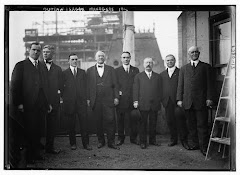Rating: 4 musky,
onion scented pierogies
Review: “Take your
stinking paws off of me you damn dirty ape!” –Astronaut Taylor.
How often do you consider your nose, the way things smell,
or how smells affect you? There can be
little doubt, that of all our senses, olfactory receives the least conscious
thought on any given day. In fact,
humans have a distain of their own human smell, as we all are aware of the
great amount of daily effort to remove all trace of human scent. Language reflects a human preference to sight
over smell with the phrase “I see” to mean I understand, whereas, “something
smells” to mean that something is wrong.
D. Michael Stoddart attempts to explore this lack of conscious thought
of the nose, why humans have a complex relationship with how we feel about how
things smell, and our own human scent. Stoddart
takes a multidisciplinary approach in his book in attempting to analyze the
role olfactory plays in human biology, culture, psychology, and evolutionary
history.
Stoddard begins with a fairly technical explanation of how
the olfactory bulb is connected to the brain of various creatures, including
humans. It is well known that other
animals use scent, and sexual attractants to aid in reproduction. In fact, olfactory is often critical to
reproduction, and in some species sexual development and maturation. Experiments on mice that have their olfactory
bulb removed results in the mice having no interest in sex, and other hormonal effects. Whether such sexual and behavioral disruption
is effected in humans is unknown (as it would unethical to remove the olfactory
bulb in a person), however, it is suspected that such an effect may occur. Indeed, the olfactory bulb, which is in the
highest passage of the nose, shares a special connection with both the
pituitary gland as well as deepest parts of the brain that control
emotion. It would seem the unique
feelings that can arise from a scent are the result of this nose-emotional
brain connection. Our eyes and ears lack
this direct connection to the emotional brain as the sensory information from
the eyes and ears are filtered through the neocortex (conscious brain) before
any emotion can be triggered.
Beyond our olfactory sense being different from our eyes and
ears the question is raised, for what purposes does our nose continue to play
in human life? The human body, more than
any other primate, contains more scent glands, focused in greatest number in
the pubic region, axillary (armpit) region, and face. That we develop pubic and axillary hair at puberty
and that hair excels at increasing the surface area for scents to be release,
it would seem that “goat under the armpit” or “flower of youth” scent is directly
tied, at least, to sexual maturity and notification of sexual maturity.
So then, why do we have such disgust with our own odor, and
where did the custom of scenting ourselves with perfumes come about. One interesting aspect of human females is
that ovulation is concealed and kept secret from males, whereas in other
primates, it is not. Also, humans,
although subject to debate, form monogamous (or at least serial monogamous)
relationships in a “gregarious” group.
One theory for this type of relationship to work in a group is that
ovulation must be kept secret from males.
Thus, courting behavior will result and force the male to invest time
with the female thereby increasing the likelihood that the male will stay with
the female throughout the duration of the pregnancy and the resulting 10-15+
years until the offspring reaches adulthood.
One theory of the use of perfume, is that the sexual attractants of
plants and animals that do mimic human body odor, was applied to scramble any
fertility signals given away by human odor.
It is clear from the book, that Stoddard is only scratching
the surface of the role of scent and human odor. Although we may think that the nose is a
primitive organ and merely a vestigial sense, it is clear that the olfactory
sense and our numerous scent glands endured to play a role in the behavior and
development of modern humans. Although,
much of the book focuses on the likely sexual connection between humans and
scent, it is interesting that the nose is also a direct gateway to emotional
parts of the brain. This likely accounts
for the unique feeling that comes about when a scent triggers a memory.
One final theory worth mentioning is that although human
scent may no longer advertise sexual readiness (ovulation), human scent may
rather be a way to promote pair bonding, and monogamy through strong emotional
attachment. Could this then account for
the ever increasing divorce rates in the last 100 years in Western cultures,
where we cleanse, deodorize, engage in depilatory activities; that our ever
increasing lack of scent makes it ever easier to break the pair bond? So ladies and gentlemen, perhaps the best way
to keep your significant other is to throw out the soap, deodorant and razors.



I've gone years without deodorant and perfumes, and men LOVE my natural scent.
ReplyDelete